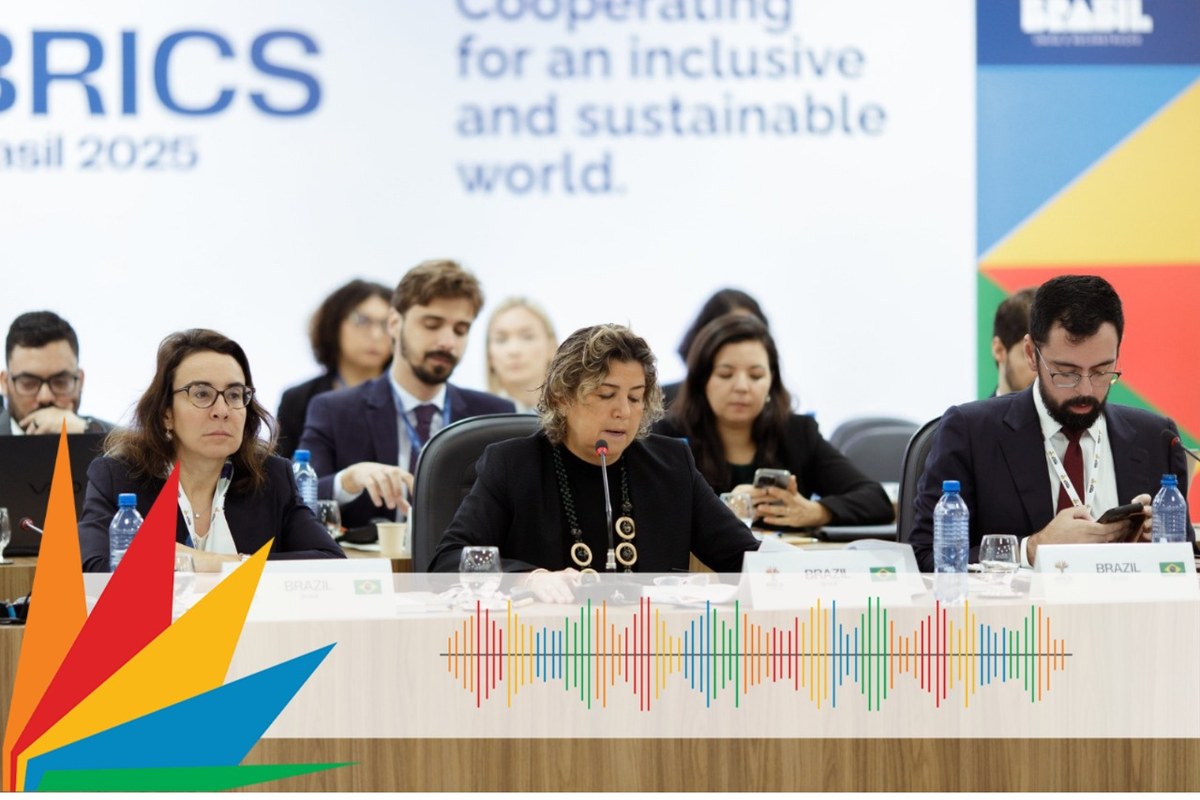BRICS Brasil Bulletin #12 - Ahead of COP30, BRICS approves first recommendation on climate finance
The document addresses issues such as reforming multilateral banks and leveraging private capital to fund climate initiatives in Global South countries. It will be presented to heads of state at the Leaders’ Summit. Listen to the report to learn more.

Report by Mayara Souto / mayara.souto@presidencia.gov.br
Voiceover: Laura Carrasco Frederico
Reporter: Vice ministers from BRICS countries approved the foundational document on climate finance during the BRICS High-Level Meeting on Climate Change and Sustainable Development in Brasília. The document outlines strategies for attracting investments to support climate action initiatives. It is expected to contribute to broader efforts leading up to COP30, the United Nations Climate Change Conference, to be held in Brasil this November. Ambassador Tatiana Rosito, Secretary for International Affairs at the Ministry of Finance (Ministério da Fazenda), highlighted the declaration's unprecedented nature.
Tatiana Rosito: She said that, for the first time, they will have a document that guides a common and collective BRICS action in the field of climate finance. This includes reforming multilateral development banks, increasing concessional financing, mobilizing private capital, and implementing other regulatory measures to ensure financial flows reach developing countries.
Reporter: The BRICS Framework Declaration for Leaders on Climate Finance will be submitted to heads of state at the upcoming BRICS summit. The document is expected to contribute to the development of the Baku-Belém Roadmap, which is an action plan aiming to mobilize up to USD 1.3 trillion by 2035 to finance climate action in developing countries.
Another key decision made by the group was to advance discussions on carbon accounting. According to Liliam Chagas, Brasil’s Ambassador for Climate and Director at the Ministry of Foreign Affairs (Ministério das Relações Exteriores/MRE) — also known as Itamaraty — the term refers to measuring the carbon footprint of a specific product or sector. The goal is to evaluate the economic impact of these practices on BRICS countries, especially with regard to foreign trade. Chagas also celebrated progress in scientific and intellectual cooperation among BRICS nations to address climate change.
Liliam Chagas: She said that this is only the second year that BRICS countries have formally discussed climate change. For the second consecutive year and with a new group and a new space for dialogue under Brasil’s leadership, they have achieved five climate-related outcomes, establishing this as one of the most dynamic groups under the Brazilian presidency.
Reporter: The group also agreed to establish a BRICS Climate Laboratory to examine the effects of climate measures on international trade. According to Ambassador Chagas, the lab will provide a space for member countries to assess the impact of trade-related climate measures on their exports and project future scenarios in case adjustments are needed to align with global standards.
English Version: Trad. Bárbara Menezes
Proofreading by Enrique Villamil